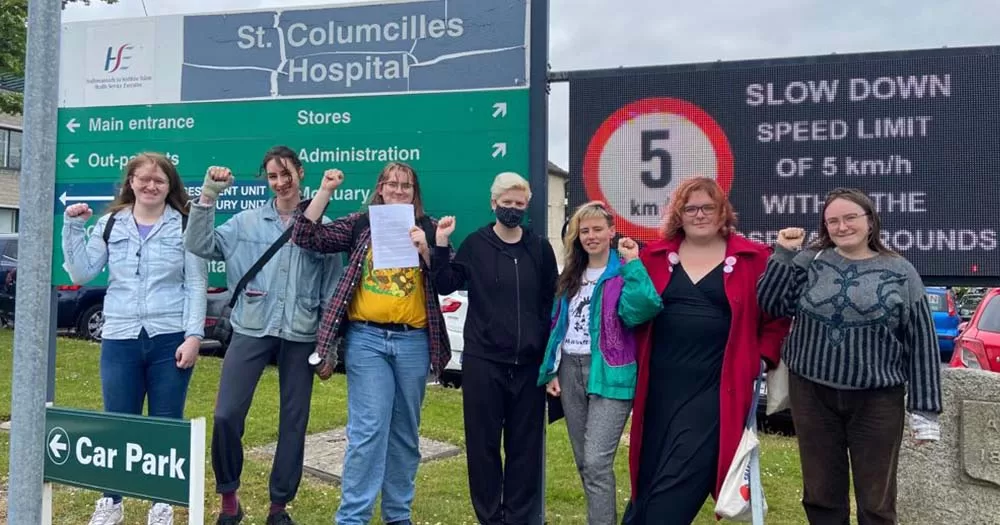A coalition of grassroots trans community groups is leading the “Transgress the NGS” campaign to call for a better model of trans healthcare and demand that the National Gender Services (NGS) stop advising GPs not to provide crucial care to their trans patients.
Their key demands are for the National Gender Service to drop their current policy of advising GPs not to provide blood tests or HRT (hormone therapy) to patients who are ‘self-medicating’, such as by sourcing HRT online or accessing private trans healthcare services.
Blood tests are required by trans people who are self-medicating or accessing private trans healthcare services as a basic safety check. However, these are currently being denied to trans patients because the NGS advises GPs not to provide them. Monitoring hormone levels via blood tests is an essential part of risk management, so advising GPs against doing so has a detrimental effect on trans people’s well-being.
Dr Neff’s response acknowledged that the NGS does, in fact, advise GPs not to provide blood tests to monitor the hormone levels of their trans patients. There is no medical reason for this, and the reasons given directly contradict the international clinical guidelines the NGS claims to follow. Instead, the policy is understandable only as a manoeuvre to stop trans patients from circumventing the NGS by accessing healthcare through their GP and to maintain the control currently exercised by the NGS staff over the lives and bodies of trans people in Ireland.
The grassroots trans community groups staged an action on Wednesday, June 7, as part of the “Transgress the NGS campaign”. Activists from “Transgress the NGS” travelled to the offices of the National Gender Services (NGS) at St Columcille’s Hospital in Loughlinstown, Dublin, to present their letter of demands for improvements in trans healthcare.
The letter further noted that, while the NGS blocks people accessing blood tests or HRT through their GP, it offers no alternative for accessing healthcare aside from being added to its own waiting list, estimated at over nine years long for those currently being referred. This wait time is the reason many choose to self-medicate or access HRT privately in the first place.
In a video of the action posted on their Instagram, “Transgress the NGS” stated that NGS staff refused to come and speak to them. They were quickly asked to leave by security, but they secured a commitment to a follow-up meeting with a senior NGS staff member.
The action on the 7th followed a phone and email picket in May, where over 450 people contacted the NGS to demand that they drop their policy of advising GPs not to provide healthcare to their trans patients. The NGS did not respond to any of these emails, but one result of the action was submitting a parliamentary question asking the NGS to explain their policy.
In his response, Karl Neff, an NGS clinician, claimed that they advise GPs not to prescribe HRT because trans people need to undergo a “comprehensive clinical assessment so that all risks and benefits of therapy can be understood” prior to accessing HRT.
However, in practice, this means subjecting trans patients to an intrusive and dehumanising psychiatric evaluation to determine whether, in the clinicians’ opinion, they are legitimately transgender. This practice is both negligent and hypocritical because it often results in trans patients undergoing significant psychological harm and being denied necessary healthcare.
It furthermore means potentially denying people access to healthcare because they do not conform to the psychiatrists’ own perceptions of what a trans person should look like and whether they are ready to start HRT.
NGS staff have prevented patients from beginning transition because of mental health problems, unemployment or inability to find secure housing. Such factors have no medical basis for being understood as a determinant of a patient’s gender, instead, this is a clear example of the NGS’ substitution of its political commitments in the place of responsible medical care.
This model contrasts starkly with international best practice approaches to trans healthcare, which operate on an informed consent basis, where it is up to trans people themselves, rather than a psychiatrist, to assess the risks and benefits of HRT. It is also why TGEU (Transgender Europe) declared the Irish model of trans healthcare the worst in Europe earlier this year.
Here is @jennymaguir’s account on what she describes as the “best case scenario” for trans healthcare in Ireland.
?️⚧️March with us on July 8th, and tell everyone you know to do the same.
Watch the full video on our tiktok: https://t.co/kMYgrgdKi7 pic.twitter.com/GnjmNg9ryG
— Trans & Intersex Pride Dublin ?️⚧️?️? (@DubTrans) June 21, 2023
“Transgress the NGS” is a new umbrella organisation formed to bring together existing grassroots trans community and healthcare organisations. Trans and Intersex Pride, the Small Trans Library and Trans Healthcare Action supported the action taken last week to demand trans healthcare.
In their online statement on the recent action, “Transgress the NGS” stated that if they receive no response from the NGS in the coming weeks, they will take further action to ensure their demands are heard.
“Transgress the NGS” are asking people to follow them on Instagram (@transgress.ie) and share their posts about the action to pressure the NGS to respond to their campaign.
© 2023 GCN (Gay Community News). All rights reserved.
Support GCN
GCN is a free, vital resource for Ireland’s LGBTQ+ community since 1988.
GCN is a trading name of National LGBT Federation CLG, a registered charity - Charity Number: 20034580.
GCN relies on the generous support of the community and allies to sustain the crucial work that we do. Producing GCN is costly, and, in an industry which has been hugely impacted by rising costs, we need your support to help sustain and grow this vital resource.
Supporting GCN for as little as €1.99 per month will help us continue our work as Ireland’s free, independent LGBTQ+ media.

comments. Please sign in to comment.